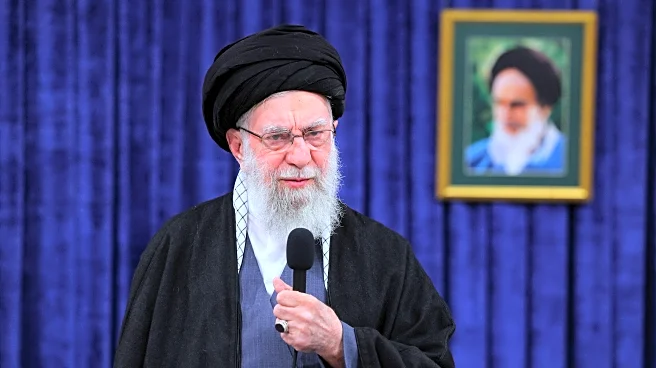What's Happening?
A plan to reconstruct Gaza has been shared with Trump administration officials, featuring the names and logos of nearly 30 companies, including Tesla, Amazon Web Services, and TSMC. However, many of these companies have stated they were unaware of their
involvement in the plan. The proposal, developed by the Gaza Humanitarian Foundation, aims to create a new entity called the Gaza Reconstitution, Economic Acceleration and Transformation (GREAT) Trust. The plan outlines private industry investment in infrastructure, but companies like Ikea and TSMC have denied any association with the proposal.
Why It's Important?
The controversy over the Gaza reconstruction plan raises questions about transparency and the use of corporate identities in international aid efforts. The involvement of major companies in such plans can significantly impact the economic and infrastructural development of regions like Gaza. However, the unauthorized use of logos and names may undermine trust and complicate future collaborations. The situation highlights the need for clear communication and agreements between private entities and humanitarian organizations to ensure effective aid distribution and infrastructure development.
What's Next?
The Gaza Humanitarian Foundation may need to address the concerns raised by the companies and clarify the intentions behind the proposal. This could involve revising the plan to accurately reflect the involvement of willing participants. The controversy might prompt discussions on ethical practices in humanitarian aid and the role of private companies in post-conflict reconstruction. Stakeholders may seek to establish more transparent processes to prevent similar issues in the future.
Beyond the Headlines
The situation underscores the ethical considerations in using corporate identities for humanitarian purposes without consent. It raises broader questions about the intersection of business interests and humanitarian efforts, particularly in conflict zones. The unauthorized use of logos may lead to legal challenges and impact the reputation of involved entities. The incident highlights the importance of ethical standards and accountability in international aid and reconstruction initiatives.

















